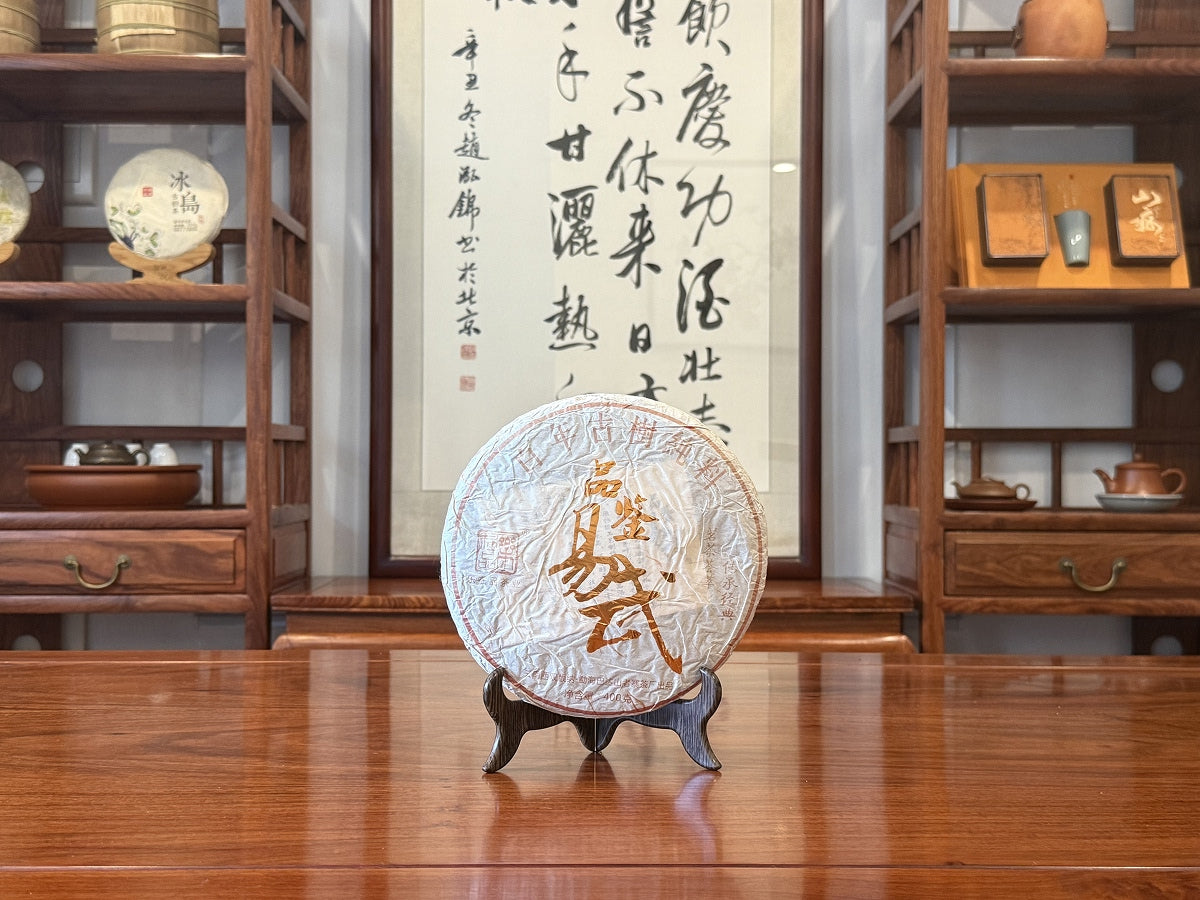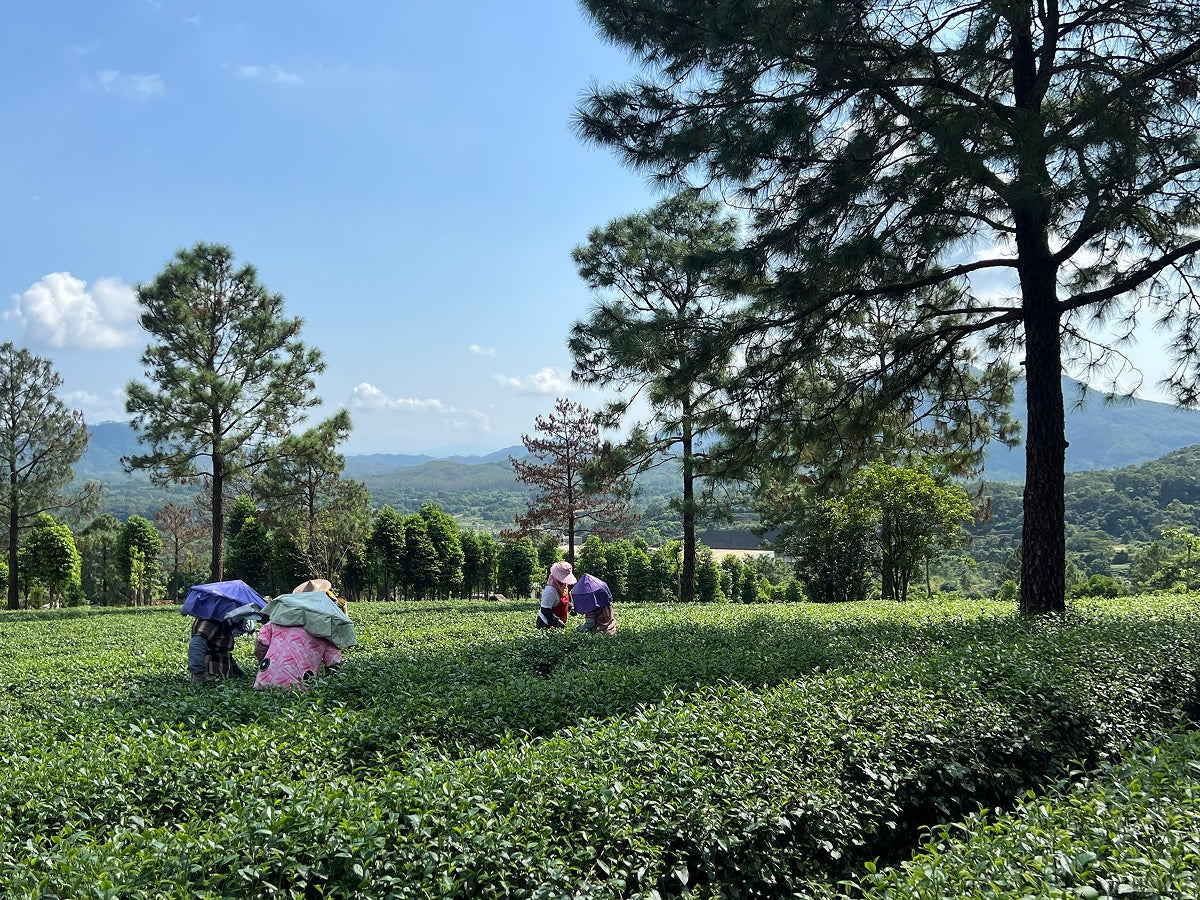
2013 Yiwu Ancient Tree Pure Material Pu'er Tea Cake
Yunnan Pu-erh (Pu’er)

The Yiwu Pure Material Raw Pu’er Tea Cake was crafted in 2013 from fresh leaves of large-leaf tea trees in the Yiwu region of Yunnan. Most of these tea trees can be traced back to the late Ming and early Qing dynasties (mid-17th to early 18th century).
“Pure Material” means that only leaves from a single region are used, without blending, fully preserving the unique character of Yiwu tea.
Ideal Growing Conditions in Yiwu
Yiwu is renowned for its high-altitude, misty mountains, fertile and well-aerated soil rich in organic matter, and warm, rainy climate—providing an ideal environment for Pu’er (Pu-erh) tea trees to thrive.
Compared with other Pu’er-producing regions in Yunnan, Yiwu teas are almost free of noticeable bitterness or astringency. The liquor is smooth and full-bodied, with a layered, lingering aroma. Its silky, delicate, and mellow mouthfeel has earned it a reputation for its distinctive “fragrant aroma” and “soft water” qualities.
Tasting Experience by Tea Masters
When guiding tea enthusiasts through a tasting in the tea house, our tea masters often describe Yiwu Pure Material tea as having a unique character. Its entry and aftertaste convey a pronounced sense of strength and satisfaction.
Tea Chemistry and Aging Potential
Yiwu large-leaf tea trees contain lower levels of catechins, the compounds responsible for bitterness, and higher levels of glycosides, which promote aging.
This combination affects the tea’s transformation in two ways:
- Lower catechins reduce bitterness and astringency.
- Higher glycosides accelerate the development of aroma and flavor.
As a result, Yiwu raw Pu’er can age more quickly than other post-fermented teas, fully showcasing the charm and complexity of well-matured Pu’er.
Tea Cake Details and Aging Effects
Our 2013 Yiwu Pure Material Pu’er Tea Cake weighs 400 grams, exceeding the traditional 357-gram standard. After 12 years of aging, the tea has become exceptionally smooth.
Its layered aroma gradually unfolds, releasing the rich fragrance of aged Pu’er (Pu-erh) and a complex, evolving flavor in every infusion.
Packaging and Storage Notes
Please note that the packaging of aged tea cakes may naturally develop creases or minor signs of wear over time. This is entirely normal and does not affect the tea’s quality or flavor.
Instead, these marks reflect the tea cake’s journey through time. As Pu’er ages, its flavor and character deepen, revealing a truly unique charm.

Gongfu Tea Brewing Guide
(Traditional Method)
| Water Temperature | 100°C (212°F) |
| Tea-to-Water Ratio | 7g tea per 160ml water |
| Steeping Time | |
| Brews 1–5 | Steep for 10–15 sec |
| Brews 6–10 | Steep for 15–20 sec |
| Brews 11–15 | Steep for 20–25 sec |
| Brews 16+ | Steep for 25+ sec |
Tips: Tea masters recommend steeping times based on each tea's unique flavor, starting the timer after pouring the water.
Common Brewing Guide
(Easy Everyday Preparation)
| Water Temperature | 100°C (212°F) |
| Leaf-to-Water Ratio | 2g per 100ml |
| Steeping Time | About 1–2 minutes |
| Subsequent Infusions | Increase by 30 seconds each time |
Tips: You can adjust the steeping time or leaf-to-water ratio to suit your taste—shorten the infusion for a lighter brew or extend it for a stronger one.











